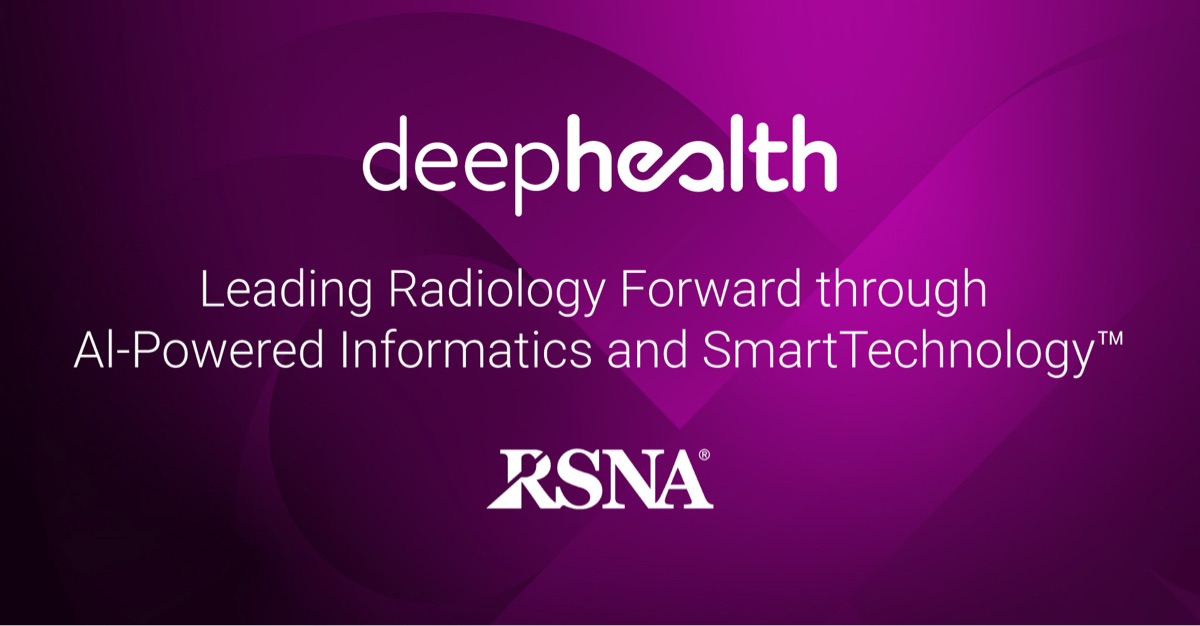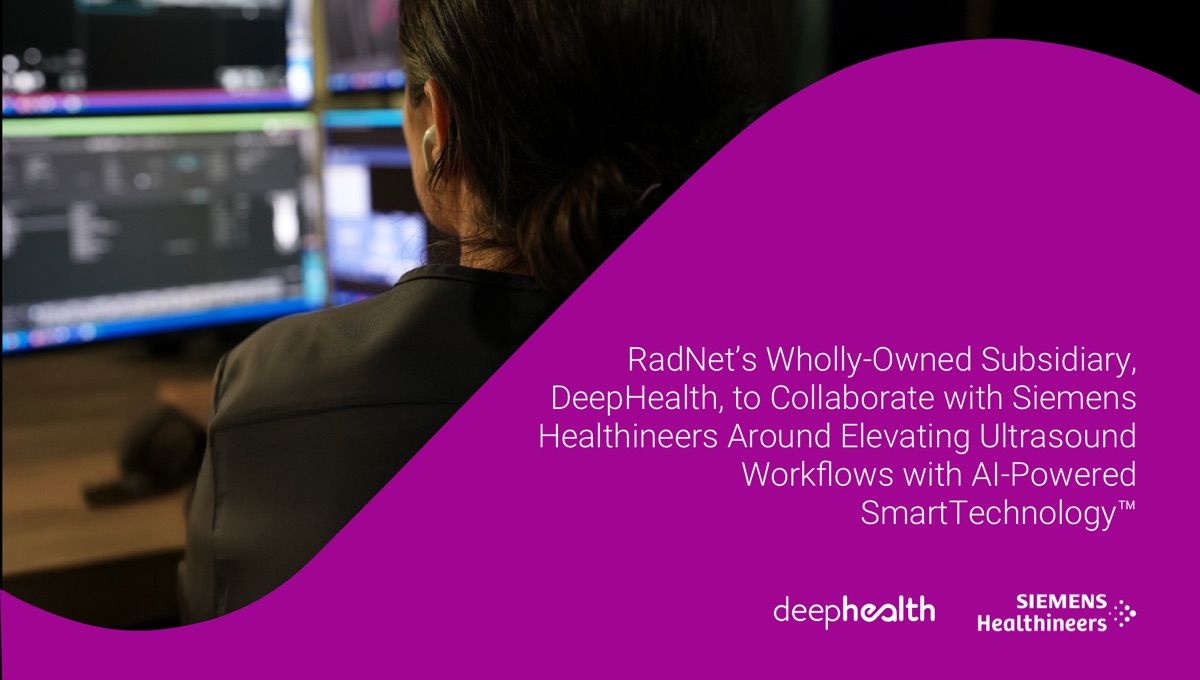HOPPR’s Medical-Grade Generalized Foundation Model enhances medical research and hypotheses while simplifying and lowering costs for data collection and training. AI Foundational Models are versatile, pre-trained architectures that serve as a starting point for customizing specific tasks through Fine-Tuned models, for which expertise in a particular domain is critical.
The partnership seeks to create new Fine-Tuned models, powered by HOPPR’s medical-grade foundation model, to bolster DeepHealth’s AI-powered health informatics portfolio by enabling it to create future solutions more quickly and efficiently and to support the evolution of radiology in the coming years. DeepHealth’s cloud-native operating system (OS) is designed to integrate clinical and operational tools, to provide radiology workflow efficiencies and improve patient outcomes.
Sham Sokka, PhD, Chief Operating and Technology Officer, DeepHealth, said, “DeepHealth’s partnership with HOPPR is a significant leap forward in DeepHealth’s mission to empower breakthroughs in care through enabling new diagnostic imaging technologies.”
“The integration of foundational models like those being developed by HOPPR in medical imaging is intended to boost diagnostic accuracy, speed up image analysis, and pave the way for generative AI in non-clinical applications, including workflow automation, ultimately enhancing patient care and outcomes in radiology. At DeepHealth, we are not just a provider of AI technology but are creating a comprehensive portfolio of solutions for medical imaging, seamlessly blending AI-based automation and efficiencies into an operating system for radiology and diagnostic workflows,” added Mr. Sokka.
HOPPR’s robust medical-grade infrastructure and tools for accelerating AI and machine learning development, combined with DeepHealth’s deep clinical expertise and successful track record in deploying AI tools at scale and in real-world settings, aim to unlock significant diagnostic, clinical, and operational value from medical imaging data and advance imaging across modalities.
“We are pleased to partner with DeepHealth to transform healthcare informatics,” said Khan Siddiqui, MD – Chief Executive Officer of HOPPR. “Our collaboration on medical grade foundation models and infrastructure supporting them could significantly enhance medical imaging, leveraging AI’s transformative potential to improve clinical care efficiency and quality. HOPPR is collaborating with DeepHealth to build a unified clinical and operational workflow that enables radiologists to efficiently access the information they need through the systems they know.”
DeepHealth’s unique ‘one system’ approach addresses challenges across the entire radiology value chain, from referral management, scheduling, and patient engagement to technologist and radiologist workflows. DeepHealth OS supports radiology departments with a comprehensive solution for medical imaging, including operational solutions and end-to-end services across the care continuum.
DeepHealth technology is used in over 800 clinical sites in select countries, and its AI tools have demonstrated real-world efficacy. For example, its solution for large-scale breast cancer screening programs has the potential to increase the cancer detection rate by up to 18%1. Over fifteen million exams are performed annually using DeepHealth solutions, resulting in more than two million AI-informed diagnoses.
About DeepHealth
DeepHealth, a wholly-owned subsidiary of RadNet, Inc. (NASDAQ: RDNT) provides AI-powered health informatics to empower breakthroughs in care delivery. The heart of its portfolio of solutions, the DeepHealth OS, is a cloud-native operating system that orchestrates all clinical and operational data to drive value across the enterprise. The portfolio builds on the strengths of RadNet’s existing digital health businesses and products, including eRAD Radiology Information Systems and Image Management Systems, Aidence lung AI, Quantib prostate AI, and DeepHealth breast AI. DeepHealth aims to elevate the role of the radiologist beyond radiology and across the entire care pathway. It empowers all users across the care continuum with personalized workflows to make work easier and more meaningful. DeepHealth leverages advanced AI operational and clinical technologies in breast, lung, brain, and prostate health, leading to increased operational efficiency, clinical confidence, and patient outcomes. https://deephealth.com/
About HOPPR AI
HOPPR is transforming medical imaging by providing medical-grade foundation models and infrastructure that enables real-time engagement with data and integration with clinical systems that enables physicians, technicians, and clinical support staff to “converse” with medical imaging studies, changing medical imaging interactions from static to dynamic. HOPPR has created both medical and administrative use cases that it will unveil with commercial partners at RSNA in December 2024. https://hoppr.ai/
Forward Looking Statement
This press release contains “forward-looking statements” within the meaning of the safe harbor provisions of the U.S. Private Securities Litigation Reform Act of 1995. Forward-looking statements, including statements regarding the capabilities of the DeepHealth health informatics product portfolio, the DeepHealth OS and each’s impact on radiology practices and healthcare workflow, are expressions of our current beliefs, expectations and assumptions regarding the future of our business, future plans and strategies, projections, and anticipated future conditions, events and trends. Forward-looking statements can generally be identified by words such as: “anticipate,” “intend,” “plan,” “goal,” “seek,” “believe,” “project,” “estimate,” “expect,” “strategy,” “future,” “likely,” “may,” “should,” “will” and similar references to future periods.
Forward-looking statements are neither historical facts nor assurances of future performance. Because forward-looking statements relate to the future, they are inherently subject to uncertainties, risks and changes in circumstances that are difficult to predict and many of which are outside of our control. Our actual results and financial condition may differ materially from those indicated in the forward-looking statements. Therefore, you should not place undue reliance on any of these forward-looking statements.
For media inquiries, please contact:
Andra Axente
Communications Director
Phone: +31 614 440971
Email: [email protected]
1 Unpublished data from a study of 14 radiology practices (200 sites) in the United States. Data on file.






